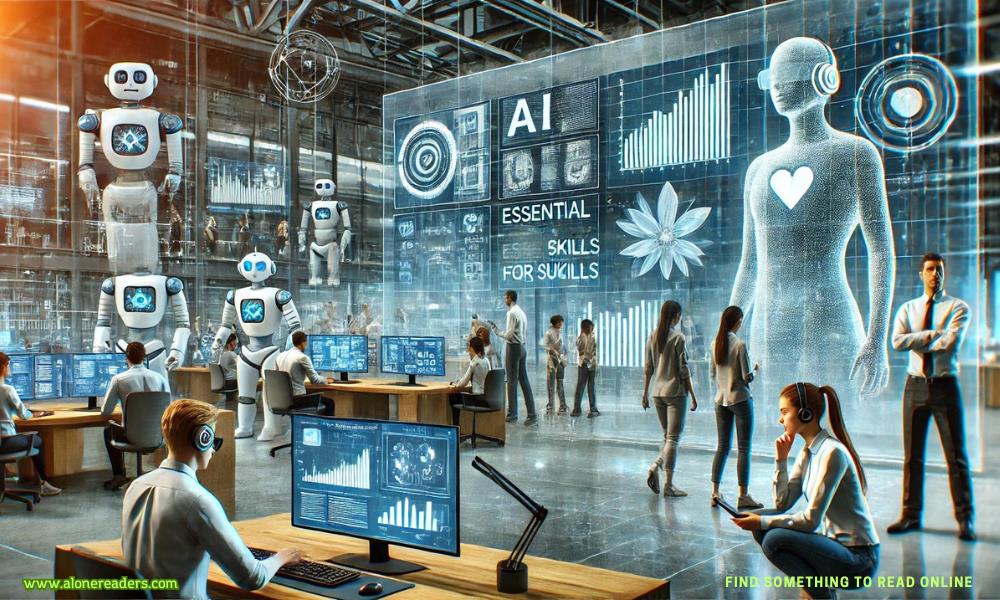
As we move further into the 21st century, the future of work is set to undergo significant transformation, driven by advances in technology, globalization, and changing societal needs. With artificial intelligence, automation, and digitalization reshaping industries, it’s clear that the skills required to succeed in the workplace of tomorrow will be different from those valued today. Understanding which skills will be in demand can help individuals future-proof their careers and organizations stay ahead of the curve.
One of the most prominent changes in the future of work will be the increasing reliance on technology. As automation continues to replace repetitive tasks, there will be a growing demand for professionals with expertise in areas like artificial intelligence, machine learning, and data analysis. These skills will allow workers to collaborate with machines effectively, using data-driven insights to make informed decisions. Furthermore, the ability to manage, interpret, and act on large volumes of data will become increasingly valuable as more companies embrace data-driven decision-making processes.
Beyond technical skills, soft skills such as creativity, emotional intelligence, and critical thinking will play a crucial role in the future of work. While machines may be able to perform certain tasks more efficiently, human traits like creativity and problem-solving are irreplaceable. Companies will look for employees who can bring innovative ideas to the table, think outside the box, and adapt to the ever-changing business landscape. Additionally, emotional intelligence, which involves the ability to understand and manage emotions, will be essential for building strong relationships, both in person and remotely, as more organizations adopt hybrid and fully remote work models.
The next decade will also see a growing emphasis on lifelong learning and adaptability. The rapid pace of technological advancements means that workers will need to constantly update their skill sets to remain competitive. Reskilling and upskilling will become the norm, with employees expected to proactively learn new technologies, tools, and methodologies. This shift in mindset will require individuals to embrace flexibility, becoming comfortable with uncertainty and change in their professional lives.
Digital literacy will also be a cornerstone of the future job market. From mastering digital communication tools to navigating complex software systems, workers will need to be tech-savvy to thrive. Understanding the basics of cybersecurity and data privacy will also be crucial as organizations strive to protect sensitive information in an increasingly interconnected world. As companies prioritize digital transformation, individuals who can bridge the gap between technology and human insight will be in high demand.
Leadership skills will undergo a transformation as well. As remote work becomes more prevalent, leaders will need to foster inclusive and supportive environments, even from a distance. Virtual collaboration, team cohesion, and conflict resolution will become essential leadership traits, ensuring that teams remain engaged and productive despite the physical separation. The ability to inspire and motivate others will remain a valuable asset, but it will need to be adapted to suit the digital age.
Globalization will continue to shape the future of work, with cross-cultural communication becoming more important than ever. As businesses operate across borders, professionals who can navigate diverse cultural contexts, speak multiple languages, and work effectively with international teams will be invaluable. Understanding the nuances of global markets and consumer behavior will give organizations a competitive edge in an increasingly interconnected economy.
In conclusion, the future of work is set to be dynamic and fast-paced, requiring individuals to develop a diverse skill set that combines both technical expertise and human-centered capabilities. As automation and technology continue to reshape industries, workers will need to be adaptable, continuously learning, and capable of thriving in hybrid or remote environments. By focusing on building skills in areas such as data analysis, emotional intelligence, creativity, and leadership, professionals can position themselves for success in the ever-evolving job market of the next decade.